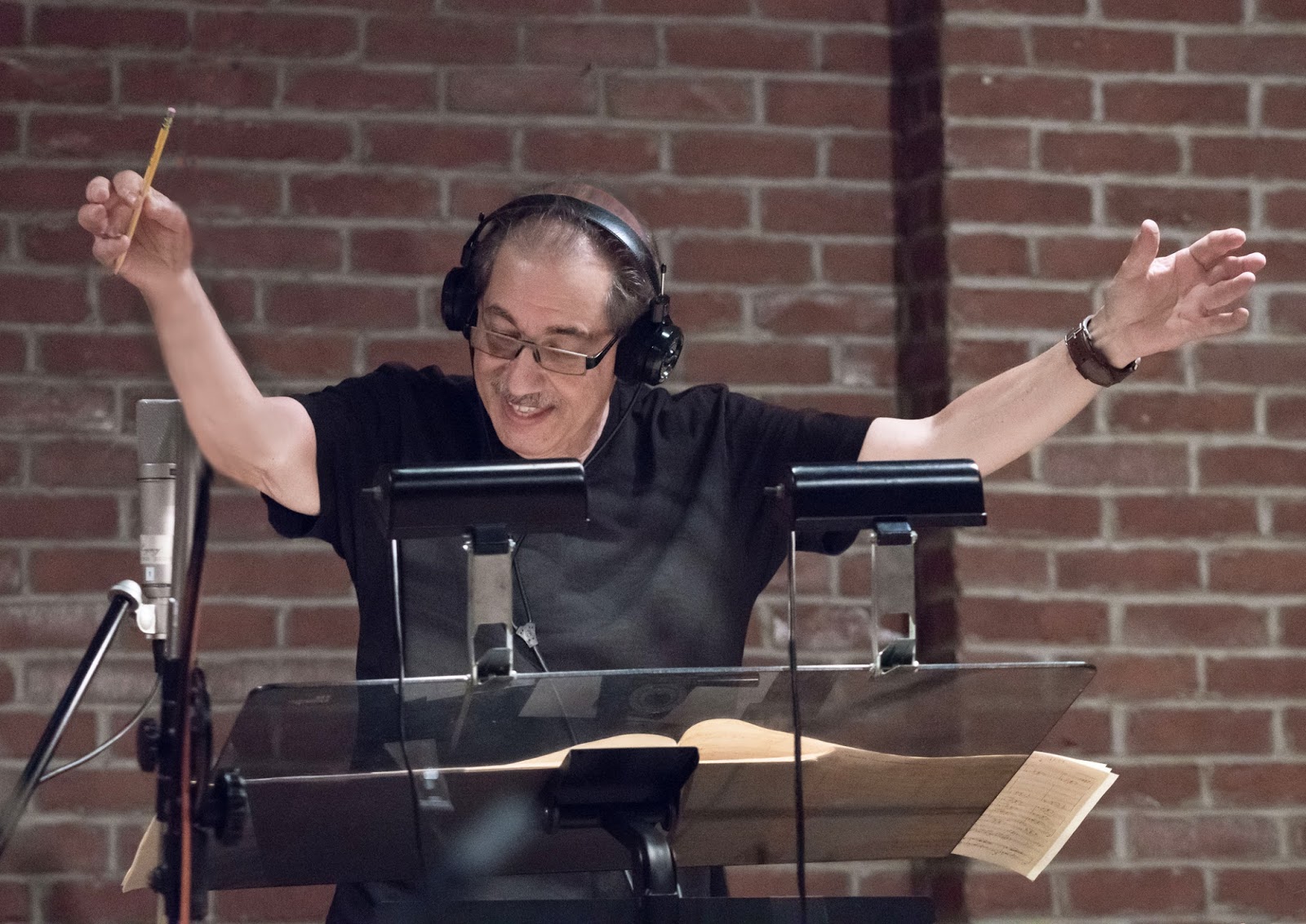Philadelphia Composer/Trumpeter John Vanore Pays Tribute to Legendary Composer/Arranger Oliver Nelson with All-Star Large Ensemble Album
Stolen Moments, out August 18, 2017, brings Vanore's unique voice to songs written or arranged by the prolific and influential Nelson
"The intriguing trumpeter pushes expressive possibilities in the real of big band culture, armed with a progressive attitude, yet also with clear roots in tradition and timeless musical values."
- Josef Woodard, DownBeat
"Ambitious writing and arranging for the 12-piece ensemble. Hauntingly beautiful well crafted stirring orchestration edgy swinging." - Bill Milkowski, JazzTimes
Named for Nelson's best known composition, Stolen Moments (due out August 18, 2017 via Acoustical Concepts) revisits nine pieces that were either composed or arranged by Nelson over the course of his prolific career. Not even the most iconic jazz artists can boast such a wide-ranging resume: Nelson is revered for his work with jazz greats like Thelonious Monk, Count Basie, Clary Terry, and Jimmy Smith; his own classic albums, The Blues and the Abstract Truth (1961) and Afro/American Sketches (1962); as well as soundtrack work for TV (The Six Million Dollar Man, Columbo) and movies (Alfie, Last Tango in Paris). "Oliver Nelson must be revered as one of the major jazz composers," Vanore insists. ""My charge was to reimagine and arrange for a unique ensemble in the spirit of Oliver, and invigorate the repertoire."
For Vanore, this mission - and the resulting album - is deeply personal. Nelson played a pivotal role in determining the bandleader's path in life. Though he'd played the trumpet since the second grade, Vanore was convinced that working-class guys from Delaware County, PA, couldn't become successful musicians. "That was like saying you want to be a Hollywood actor," Vanore laughs. But then he encountered Nelson's music first-hand one summer via the National Stage Band Camp at Indiana University in Bloomington, with Nelson himself conducting the band.
As of that moment, Vanore was no longer an engineering student with a future in the sciences; he was a musician destined to arrange thoughtful, inventive large ensemble music. When he founded his own band in the early '80s, he named it Abstract Truth after Nelson's best-loved album. Vanore never strove to sound like his idol, though, which would have run counter to the spirit of Nelson's ground-breaking and constantly evolving life's work. "His main influence was have your own identity and be original," Vanore says.
Through the decades Vanore has rigorously adhered to that message, following his own path in music and performing his own compositions almost exclusively. His Philadelphia-based band Abstract Truth has a unique make-up, with French horn and just two saxophones in place of the usual woodwind arsenal, a line-up replicated with the all-star ensemble he's assembled for Stolen Moments (adding a second French horn): saxophonists Steve Wilson and Bob Malach; trumpet players Tony Kadleck, Augie Haas, Jon Owens and Dave Ballou; Adam Unsworth and George Barnett on French horns; trombonists Ryan Keberle and Dave Taylor; and the rhythm section of pianist Jim Ridl, bassist Mike Richmond, drummer Danny Gottlieb, guitarist Greg Kettinger, and percussionist Beth Gottlieb. Vanore left the podium to take a heartfelt trumpet solo on the title track. This solo is, in many ways, the culmination of Vanore's musical journey, a thanks to the man who inspired it all.
The repertoire Vanore chose ranges from throughout Nelson's career. "Repertoire was key," he explains. "I wanted to create an impactful collection of material that would demonstrate Oliver's various points of view." The album opens with the cool swing and powerful explosiveness of "Self-Help is Needed" from Nelson's 1969 album Black, Brown and Beautiful, which offered Vanore, a life-changing introduction to Nelson's compositional abilities. The same album is also the source for "I Hope in Time a Change Will Come," on which Steve Wilson's performance evokes a timeless cultural cry. The much-recorded '60s pop standard "A Taste of Honey" is followed by the immortal title track; the rare treasure "El Gato" was written in homage to Argentinean saxophonist Gato Barbieri. Taken by Vanore's band at a poignantly eloquent slow pace, W.C. Handy's classic "St. Louis Blues" was an obvious choice for St. Louis native Nelson, while the title cut from Blues and the Abstract Truth is a prime example of Nelson's ahead-of-its-time modernism. Vanore masses the horns to lead into the timeless folk song "Greensleeves," which Nelson recorded on 1968's The Sound of Feeling. Finally, "Reuben's Rondo" - the song that changed Vanore's life those many years ago - closes out the album with jaunty, muscular swing.
For Vanore, the title Stolen Moments has a dual meaning. On the surface, of course, it tips its hat to the jaw-droppingly beautiful, achingly expressive tune that will forever be Oliver Nelson's most lasting legacy. But it also carries the bittersweet acknowledgement of the legendary composer's life, cut far too short.
"This year would have been his 85th birthday," Vanore says. "A lot of great jazz artists are still active at 85. When you consider the book he wrote, you have to wonder what his output could have been if he had lived."





